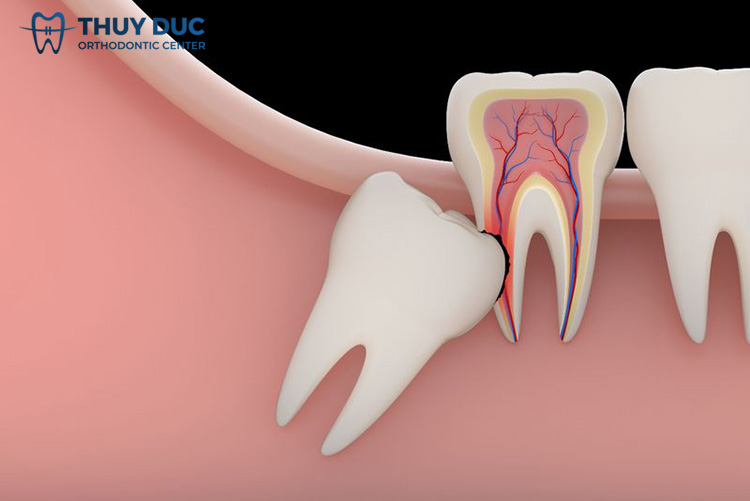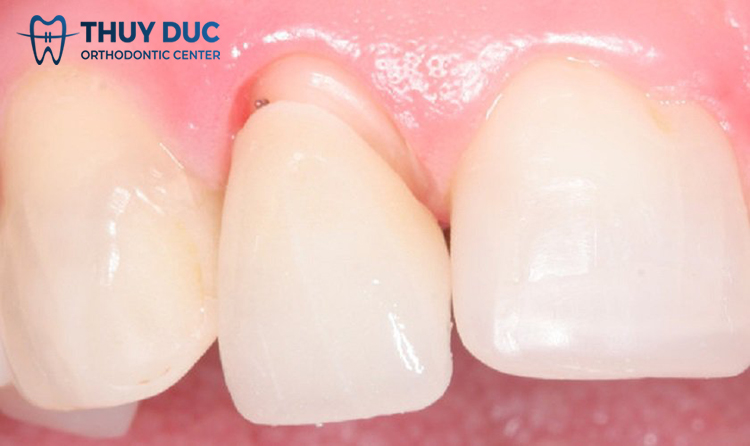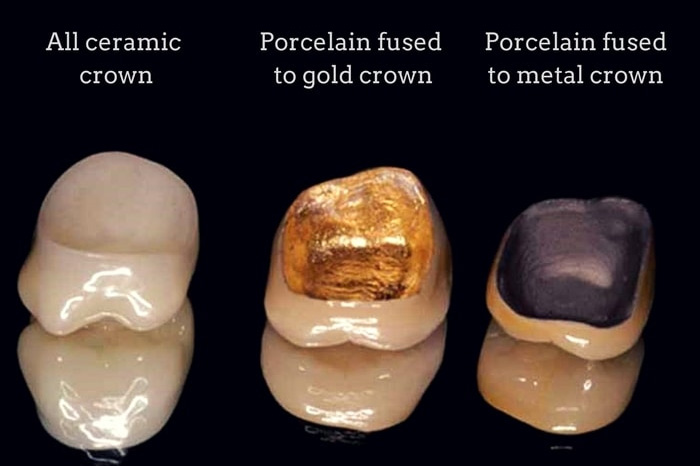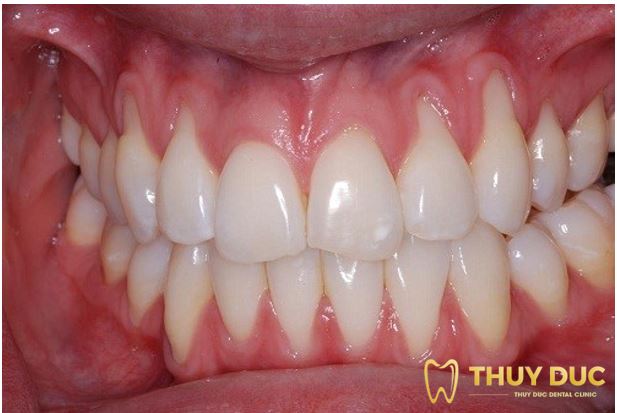Table of contents
1. The most common complications of wisdom teeth
Wisdom teeth, also known as teeth number 8, grow last in the mouth in the same jaw, when people have reached the end of their jaw bone development. Because our jawbone usually only has enough room for 28 teeth, growing wisdom teeth often lack space, leading to misalignment, reverse growth, incomplete growth, and crowding into other teeth.
Pain and discomfort are symptoms that most people with wisdom teeth experience, but many cases face more dangerous complications such as:
1.1. Jaw cyst
When wisdom teeth grow crookedly, they hit adjacent teeth, causing tooth root resorption and degeneration into pathological cysts in the jawbone. If this cyst is not treated well, it can grow as it grows and can damage teeth, jawbone, and loss of nerve function.
1.2. Bacterial infection, gingivitis
Misaligned teeth cause swelling, pain and are susceptible to infection when oral bacteria attack. If the patient does not have good oral hygiene, food and bacteria remain in the gum pockets, causing gingivitis, pus accumulation, and acute periodontal inflammation. More severe cases can progress to sepsis leading to death.
1.3. Caries
Impacted wisdom teeth not only easily damage neighboring teeth but also create favorable conditions for bacteria to grow and cause tooth decay. The larger the cavity, the more the jaw tooth structure will be destroyed, making it easier to spread to other teeth.
1.4. Affects nerves
Wisdom teeth grow in and cause a lot of pain, partly because they affect many nerves in the face. Many cases of swelling and pain due to wisdom teeth lead to loss or decreased sensation in the lips, skin, face, etc. Sympathetic syndrome is one of the common neurological complications caused by misaligned wisdom teeth with symptoms: edema, redness around the eye socket, pain on one side of the face,…
2. Is wisdom tooth extraction dangerous?
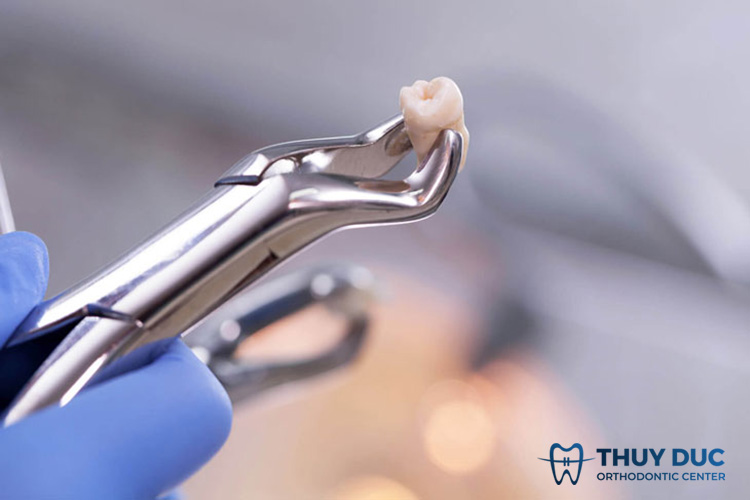
With the pain and discomfort every time wisdom teeth grow, many people choose to have their wisdom teeth extracted early. More and more, wisdom tooth extraction procedures are being performed more and more, patients can go to hospitals and dental clinics to have them extracted quickly and safely.
In general, wisdom tooth extraction is relatively safe, both helping you reduce pain and preventing dental complications that may occur due to wisdom teeth. However, you need to choose a reputable location for the procedure, dentists who do not have much experience can cause heavy bleeding and infection after surgery. The surgical wound is not treated well and infection also leads to complications of necrosis, blood infection, etc.
In addition, the location where wisdom teeth grow is where many nerves of the jaw and face are concentrated, so if done poorly, it can affect these nerves. Signs that the nerves are affected after wisdom tooth extraction include: tingling sensation, numbness in the tongue, pain in the chin, lower lip, teeth, etc., lasting even after the swelling and pain caused by wisdom tooth extraction has decreased. .
To safely extract wisdom teeth, the dentist will need to examine the structure of the wisdom teeth in the jaw along with the adjacent teeth to have an appropriate extraction plan. Along with that is the support of modern dental equipment, which is well sterilized to prevent infection. Then, the process of removing your wisdom teeth will become faster and less painful.
3. What to do when wisdom teeth grow?
Not all cases of wisdom teeth need to be extracted, although they are more or less uncomfortable and painful. When wisdom teeth grow straight, cause little or no displacement to other teeth in the jaw, and pose little risk of causing difficulty in oral hygiene, you may not need to have them extracted. Wisdom teeth will grow slowly, so during this process you may experience pain and uncomfortable swelling of the gums, but it is not too serious.
When impacted wisdom teeth fall into the following cases, you should consider removing them early to limit pain and impact on the molar structure:
Wisdom teeth grow crooked and hidden, causing pain, tooth decay, inflammation, tight jaw,…
Misaligned wisdom teeth affect the molar structure, causing loss of aesthetics and changing the face.
Wisdom teeth grow out of the dental arch, have no chewing function and also interfere with oral hygiene.
Wisdom teeth grow straight but have an irregular shape, creating a place where food is crammed, easily causing tooth decay, periodontal disease,…
Wisdom teeth grow straight but do not have opposing teeth that match, over time it can easily cause ulcers of the gum lining, causing food stuffing that is difficult to clean,…
Growing wisdom teeth can easily cause tooth decay and misaligned teeth
Growing wisdom teeth can easily cause tooth decay and misaligned teeth
To know whether wisdom teeth need to be extracted or not, you should go for a check-up at a specialized medical facility. If necessary, the doctor will advise early wisdom tooth extraction to limit complications for molars.
